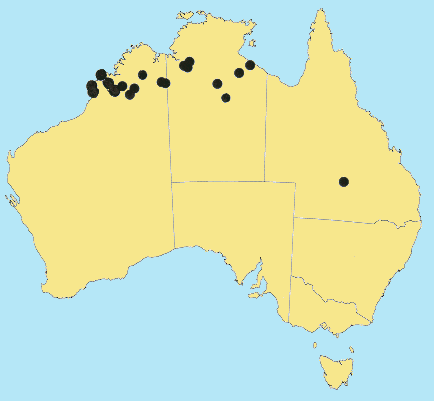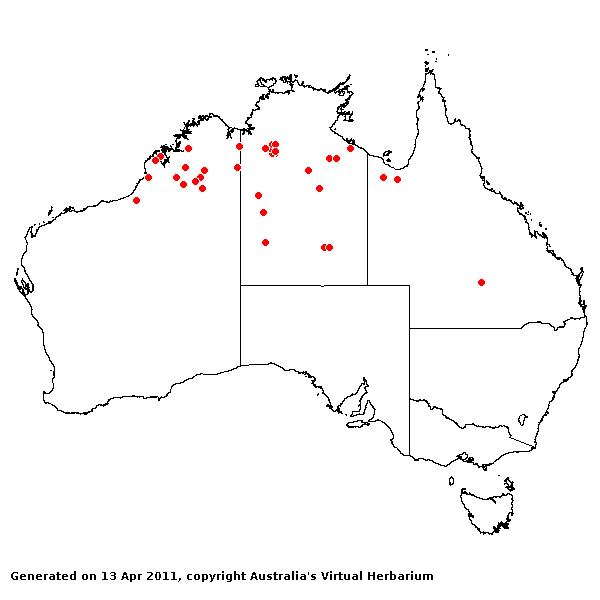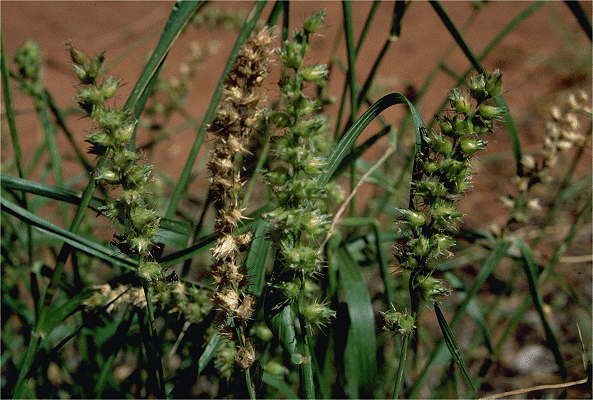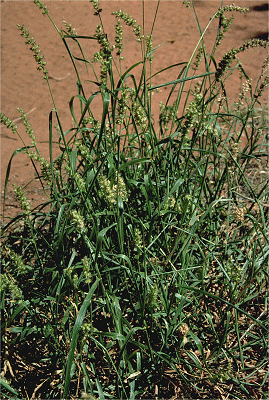Cenchrus biflorus* Roxb. Fl. Indica
1: 238 (1820).
Classification. (GPWG 2001) : Subfamily
Panicoideae. Paniceae.
Type of Basionym or
Protologue Information: HT: Roxburgh s.n., India: "A native of
the interioir, elevated, dry parts of the Coromandel Coast." (BM).
Recent synonyms:
C. barbatus.
Key references
(books and floras): [2002] D.Sharp & B.K.Simon, AusGrass, Grasses of
Australia.
Habit. Annual.
Rhizomes absent. Stolons absent. Culms geniculately ascending, 5–90 cm tall.
Mid-culm internodes hollow, thin-walled, glabrous or pubescent. Mid-culm nodes
glabrous. Lateral branches branched. Leaves basal and cauline. Leaf-sheaths
scaberulous, glabrous on surface or hairy. Ligule a fringe of hairs, 1.3–2 mm long.
Leaf-blades linear or lanceolate, 2–25 cm long, 2–7 mm wide. Leaf-blade surface
scaberulous, indumented.
Inflorescence.
Inflorescence solid, of only a few spikelets (spicate). Panicle linear, 2–15 cm
long. Racemes 2–15 cm long.
Spikelets.
Spikelets sessile, 1–3 in the cluster. Involucre composed of bristles, connate
into a disc below (2–4mm diam). Fertile spikelets 2-flowered, the lower floret
barren (rarely male), the upper fertile, comprising 1 basal sterile florets,
comprising 1 fertile floret(s), without rachilla extension, ovate, dorsally
compressed, 3.5–6 mm long.
Glumes. Glumes
thinner than fertile lemma. Lower glume lanceolate, membranous, without keels,
0–1 -nerved. Upper glume ovate, 2.5–3.5 mm long, membranous, without keels, 1–5
-nerved. Florets. Basal sterile florets 1, barren, with palea or without
significant palea. Lemma of lower sterile floret 70–80 % of length of spikelet,
membranous, 3–5 -nerved, muticous or mucronate.
Fertile lemma 3.5–6 mm
long, without keel, 5 -nerved. Anthers 3. Grain 1.1–1.3 mm long.
Continental
Distribution: Africa, Temperate Asia, Tropical Asia, and Australasia.
Australian
Distribution: Western Australia, Northern Territory, Queensland.
Western Australia:
Dampier. Northern Territory: Victoria River, Barkly Tableland. Queensland:
Warrego.
Notes.
Introduced. In tropical and subtropical sub-humid woodlands, arid and semi-arid
low woodlands, acacia shrublands, and arid tussock grasslands. Flowers
Apr.-Aug.




